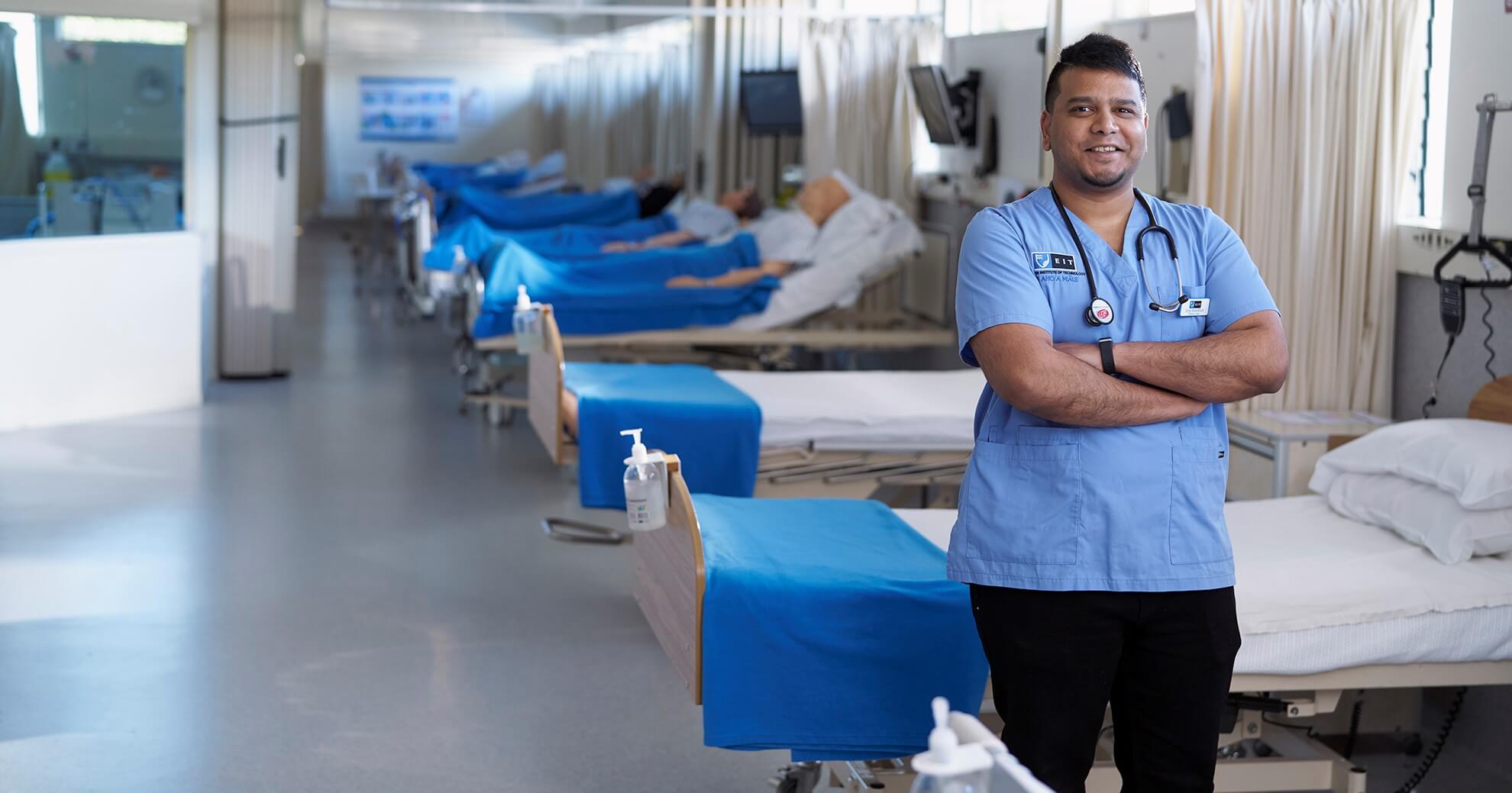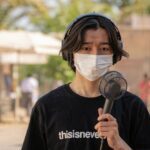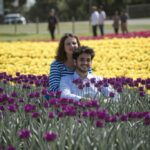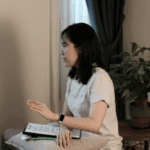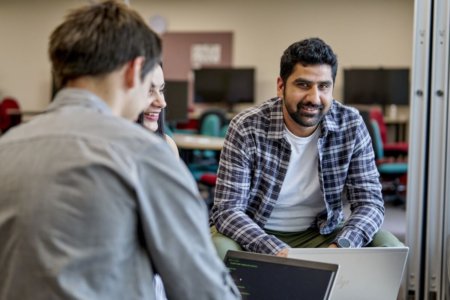Courageous, irreplaceable and compassionate — these are fitting descriptions for nurses and health workers who are more valued than ever in today’s world. For all the progress in medical technology and the higher demand for efficiency from health professionals, nursing and health science are still very much rooted in empathy and the human touch.
In multicultural countries like New Zealand, having nurses and health practitioners with the know-how to engage with those from Māori, European, Pacific Peoples, Asian, Middle Eastern/Latin American/African (MELAA) ancestries can make all the difference during this pivotal time for healthcare systems. At the Eastern Institute of Technology (EIT), Nursing and Health Science students develop this vital skill to work with patients and colleagues from all backgrounds, as well as the ability to adapt to rapid developments in their professions.
EIT offers programmes such as the Bachelor of Nursing, Master of Nursing Science, Postgraduate Diploma in Health Science, and Master of Health Science. “Health science courses are designed around knowledge and research relating to key threads of health disparities and the global health needs of populations,” says Dr Patrick Lander, Principal Lecturer in Health and Sport Science.
As the pandemic pushes healthcare practitioners to the frontlines, graduates entering the workforce are faced with dynamic and challenging work environments. They will need more than just communication skills and healthcare experience. They will need to be able to jump between departments, adapt to rapid developments and creatively solve the shortages in equipment and manpower.

Source: Eastern Institute of Technology
This is why EIT’s adaptable and relevant curriculum stands out. The Bachelor of Nursing programme uses a blend of face-to-face and online teaching, including approximately 1,100 hours of work-integrated learning (WIL) over three years and in a variety of healthcare settings. This includes private and public hospitals, as well as aged care facilities and other settings like the Department of Corrections. WIL occurs in blocks that range between one to nine weeks, and is integrated into every semester of the programme.
This posed a challenge during New Zealand’s first COVID-19 lockdown response, but it was quickly overcome as the programme was restructured to push all WIL to the second semester. “We were able to keep the programme running and ensure that students were not held back by 6 to 12 months. Bearing in mind that nursing is an applied science, we had some really creative teaching online, utilising Zoom and Skype as well as interactive content!” says Clare Buckley, who heads the School of Nursing.
Similarly, the Master of Nursing Science carried on with minimal disruption. The programme is completed in one and one-half years full-time. Students can choose from clinically-focused courses along with research, management, and theory-based courses. “Where courses also include tutorials and other on-campus days, these were facilitated in the online environment and through resources such as Zoom. Our lecturers were available to talk to students throughout the lockdown period,” recalls Buckley.

Source: Eastern Institute of Technology
Things are tough now, but Buckley foresees a rosy future for nursing. All EIT Bachelor of Nursing graduates who passed the State Final Examination have found employment as registered nurses. “With the advent of advanced practice roles and scopes, there are even more opportunities for nurses to pursue more autonomous careers in nursing. COVID-19 has highlighted the importance of nursing across the continuum of healthcare, as well as in research and strategic roles. Frontline nursing, screening, policy development, and contact tracing are all examples of how and where nurses were utilised during the pandemic,” explains Buckley.
In the Health Science programmes, students are required to consider the real-world health issues affecting an individual, group or community in terms of aetiology, prevention, treatment and recovery. This prepares students to work in various settings. “The programme provides students with the opportunity to investigate the worldwide improvement of health, reduction of health disparities, and protection against global threats from an international context,” says Lander.
It’s a foundation that sets them up for success. “After completing our programmes, most of our health science students go to work in health-related fields. I am proud to say that our students have gotten jobs in the pharmaceutical industry, aged care facilities, tertiary education institutes and hospitals, to name a few,” says Dr Anita Jagroop-Dearing, who is the International Postgraduate Programme Coordinator at the School of Nursing and School of Health and Sport Science.

Source: Eastern Institute of Technology
Shardul Abhyankar is one of EIT’s successful graduates. The Postgraduate Diploma in Health Science student is now an occupational therapist at Hawke’s Bay District Health Board. “Studying alongside classmates from different cultures provided varied viewpoints and more interesting class discussions and debates,” he says.
His EIT experience not only helped him understand health systems and cultural diversity, but also how to transition from tertiary education to the workplace seamlessly. “I felt well prepared due to the quality of the EIT programme and its wide scope. Everyone at EIT and my place of work have been supportive and helped me at every level in transitioning smoothly into work after I completed my studies,” he says.
From start to finish, students can access various sources of support, from lecturers to library learning advisors, international student mentors to peer counsellors. As Nadeeka Weearasinghe Mudiyanselage, a Master of Nursing Science student says, “EIT is the best institution for international students who are looking for high quality education and to have a wonderful experience.”
Follow Eastern Institute of Technology on Facebook, Instagram, Twitter, YouTube and LinkedIn

